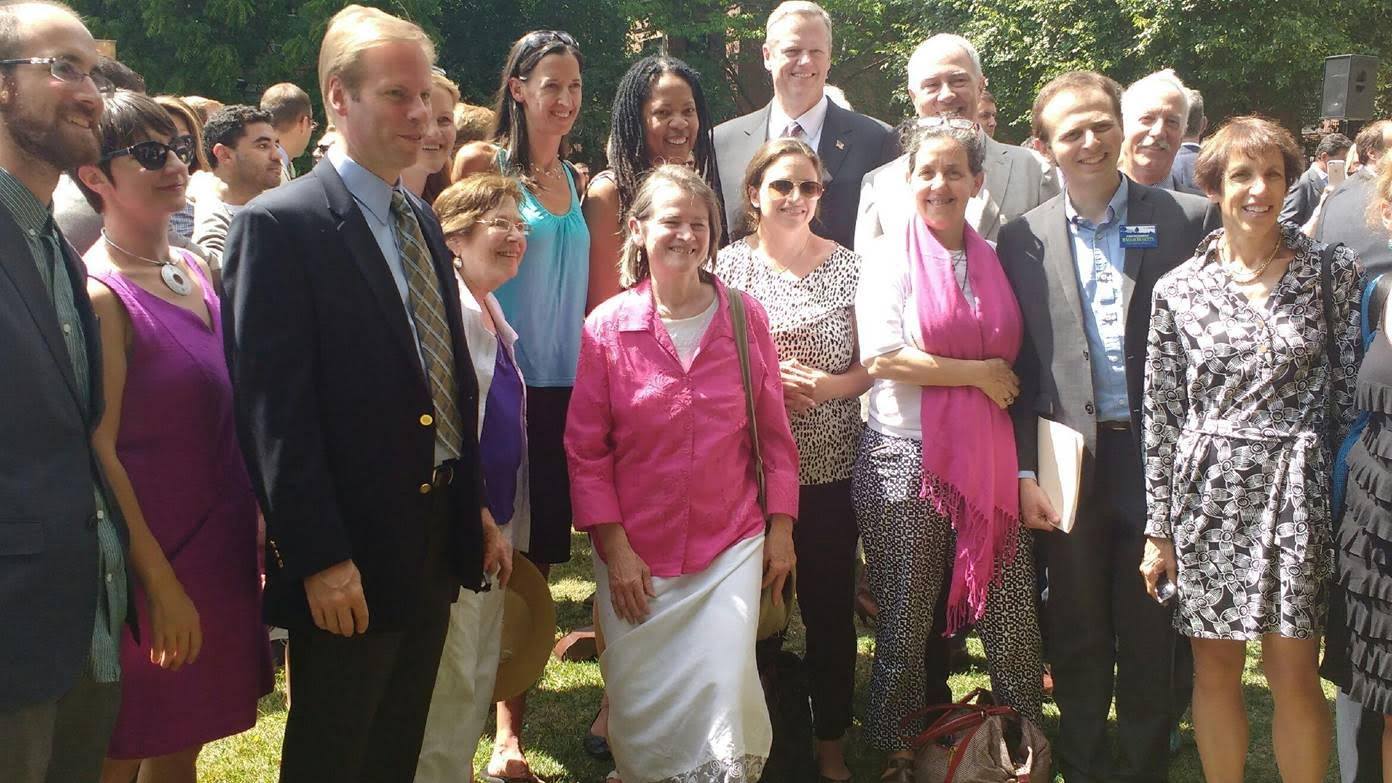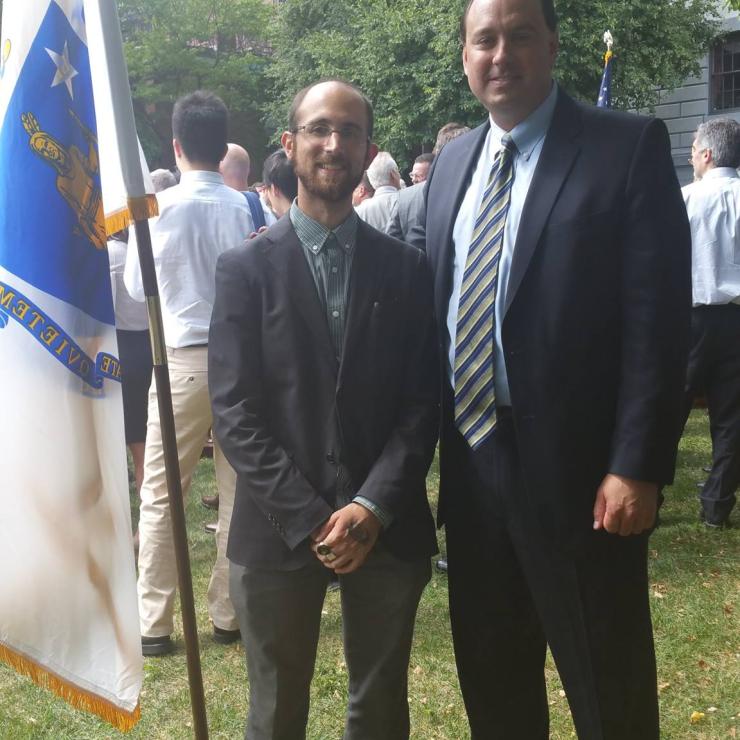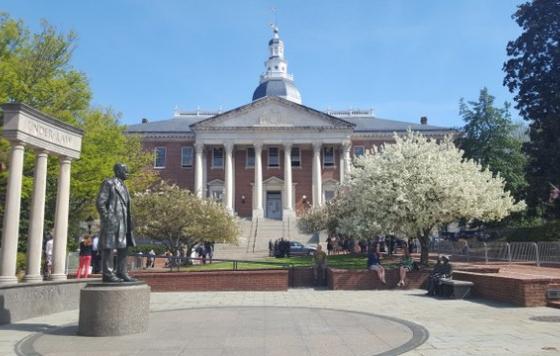
It has been a busy, busy two years.
Advocates, activists, health professionals, clean energy entrepeneurs, faith leaders, researchers, scientists, and public officials in every corner of the state have been pushing forward clean energy and climate solutions that empower communities, invest in our local economies and deal a blow to the ever-expanding footprint of fossil fuels.
This week, I was pleased to join many of my colleagues from partner organizations--many of whom are members of the Global Warming Solutions Project--to attend the bill signing of An act to promote energy diversity. This legislation is already making national news, primarily due to its landmark commitment to offshore wind. As we phase out coal and nuclear power, this incredible resource is a vital part of our energy future, and will provide Massachusetts with power during cold, dark winter nights while building a new industry with high-quality union jobs. The bill also contains critical provisions around energy storage, gas leak repair, nuclear decommissioning and commercial-scale efficiency, as well as a large procurement for transmission lines to bring down a mix of hydropower and land-based wind.
True, we haven't won every battle, and the bill certainly has its shortcomings: so-called waste-to-energy provisions, weaker protections than we'd like on new transmission line development, and a few notable omissions. Our state needs legislative protections to stop the proposed "Pipeline Tax" and new mandates to raise the Renewable Portfolio Standard, the amount of clean power utilities are required to buy. Clean Water Action will continue to work on these issues through future administrative, legislative and legal appeals, and we're optimistic about potential for further progress on several areas.
Yet the threat posed by climate change is immense, and we have a lot of work to do. As we experience a serious drought here in the Bay State, we also have to look forward to the future. Our legally mandated emission reductions are steep, and we're still far from compliance with that law. Above and beyond the recent legislative advances we've won, we have to make drastic changes to meet our 2020 climate targets. As Dr. Liz Stanton writes: "52 months. Tick tock."
According to Synapse Energy Economics, we'll have to bolster our energy efficiency and renewable energy programs by raising targets and expanding participation, bring the first of our large energy imports online and seek other quick solutions, even as we prepare for a much more daunting 2050 goal. But we also have to be on the watch so that emissions from existing sectors don't increase - as they would if we build new gas pipelines - and must fight for timely implementation of policies we have on the book, like fixing gas leaks.
It's not an easy charge, but it's one we are committed to. And while we'll be back at the legislature again in January 2017, you can rest assured we are already working to hold firm and implement the gains we've made in coalition with activists all across the state. More than once we routed powerful industries and sent them running, and while we may have tripped up ourselves a time or two, it's worth taking a moment to celebrate how far we've come.

Photo: Joel Wool from Clean Water Action with State Sen. James Eldridge
I'm celebrating some downtime, enjoying the sun & summer rain this month, but you better believe I'm thinking about the future of power. For clean water and a safer climate, I wish all of you a delightful and peaceful August.



